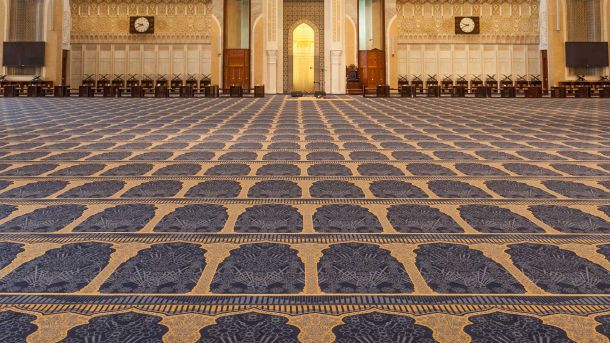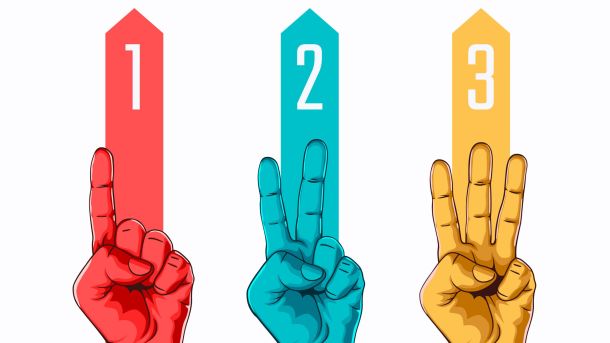News Archive
Feb 15, 2010
Don’t Just Stand There!
Since the latecomer to the congregational prayer does not count the rakʿah unless he has joined during the rukūʿ, some people believe that if they come after the rukūʿ there is no point in joining the prayer until the imām stands back up for the next rakʿah, even if it means standing there looking around for a long time while the congregation makes tashahhud!
Here’s why this is forbidden from a four-fold textual standpoint:
1) The generality of the ḥadīth which is found in al-Bukhārī and Muslim:
”The imām has only been appointed to be followed…”
2…
Feb 13, 2010
The Ruling on Circumcising the Hermaphrodite
From the lectures entitled, “Characteristics of the Fitrah”.
Feb 12, 2010
You Guide Not Whom You Love but Allāh Guides Whom He Wills
Verily! You (‘O Muḥammad, ﷺ) guide not whom you love, but Allāh guides whom He wills. And He knows best those who are the guided.” I (Shaykh ʿAbd al-Raḥmān) say: The negated thing here is guidance of tawfīq and acceptance. For verily that matter is only for Allāh and He alone has power over that. And as for the guidance mentioned in the statement of Allāh taʿālá: “And verily you (‘O Muḥammad) are indeed guiding (mankind) to the straight path” this is referring to the guidance of showing and clarification. So he (ﷺ) clarifies matters regarding Allāh and he shows the way of His dīn and His leg…
Feb 10, 2010
Refuting the Muslim but Not the Kāfir?
After mentioning that those who deviate from the orders of Allāh are in categories Ibn Qudama al Maqdisi (d. 689 Hijra) mentioned:
Section Two: The innovator, if he is one who calls toward innovation and the innovation is from those that will make him a disbeliever (bidʿah mukaffarah), then his matter is more severe than that of a Thimmi because he would neither agree to pay the Jizyah nor would he make an agreement to live as a Thimmi.
And if it is that his innovation does not make him a disbeliever, then the affair between himself and Allāh is less severe than the situation of the Kāfir…
Feb 10, 2010
The Three Fundamental Principles
-Class was not completed-
About the Book:
A Gift for the Intellects in Explanation of the Three Fundamental Principles by Shaykh al-Islām Muḥammad Ibn ʿAbd al-Wahhāb [raḥimahullāh] with the explanation of Shaykh ʿUbayd al-Jābirī
The book before you is an explanation of a concise yet great work written by a noble Scholar of Islām from the twelfth century of Islām, known as Muḥammad Ibn ʿAbd al-Wahhāb. He compiled this work, called “The Three Fundamental Principles”, in order to make clear to the people the core and fundamental principles upon which Islām is established.
Shaykh Muḥammad Ibn…
Feb 9, 2010
Marriage Is Not Lust, Women Are Not Just Pleasure and Enjoyment
This is deception to the woman and dishonesty and misleading her; and if a man came to his daughter or his sister and he knew that he did not want her except for this purpose he would not allow him to marry her, but when it comes to other people’s daughters he does whatever he wants.
Shaykh ʿAbd al-ʿAzīz ibn ʿAbdullāh Āl al-ShaykhThe noble Shaykh, the Muftī of the committee of major scholars in Saudi al-ʿArabīa, Shaykh ʿAbd al-ʿAzīz ibn ʿAbdullāh Āli Shaykh declared that marriage is not just about lust and fulfilling the desires rather it is security and living together and stability.
The n…
Feb 3, 2010
Given the Choice – Marry a Sister upon the Sunnah or a Sister upon Innovation?
ʿImrān ibn Hitān, al-Sunnī (meaning that he was a sunnī) thumma (then he became a) al-Khārijī: He adopted the madh`hab of the khawārij during the later stages of his life. The reason for that was his cousin (female) was of the madh`hab of the khawārij, so he wanted to make her change; however, she ended up making him change to her madh`hab!1
Ibn Kathīr further stated:
“ʿImrān ibn Hitān Al-Khārijī: At first he was from Ahl al-Sunnah wal-Jamāʿah. However he married a very beautiful woman from the Khawārij and he loved her immensely, whereas he was unattractive. Thus he wanted to change her to…
Feb 2, 2010
The Reality of al-Ḥarakāh al-Shabāb al-Mujāhidīn in Somalia
However, it is obligatory to differentiate between the legislated Jihād which Allāh and His Messenger has commanded and the innovated Jihād which is the Jihād (waged by) misguided individuals who perform Jihād in obedience to the Devil but they believe that they are performing Jihād in obedience to the Most Merciful (al-Raḥmān). This is like the Jihād of the people of innovation and desires such as the Khawārij and other than them who fight against the people of Islām…
Shaykh Ḥasan al-ṢumālīWhat Is The Methodology Of Shabāb?
“A member of her household bore witness.” (Yusuf…
Jan 28, 2010
The Ruling on Using Musical Entertainment to Gather People for the Purpose of Daʿwah
…the fact that those who understand these innovated musical gatherings to be a valid means unto Allāh, give precedence to these gatherings over gatherings in which the Qurʾān is recited, pondered and thus reflected upon. It is also possible that these individuals intentionally gave precedence to music over the Qurʾān, to the extent that they would only listen to the Qurʾān with heedless hearts, mimicking tongues, wavering actions, voices deemed unacceptable to the hearts, and dispositions that are not comforted by its recitation.Thus, it is mandatory to expose falsehood and defend the daʿwah…








